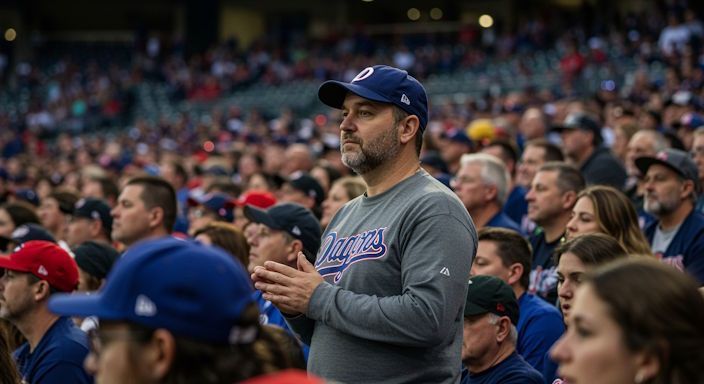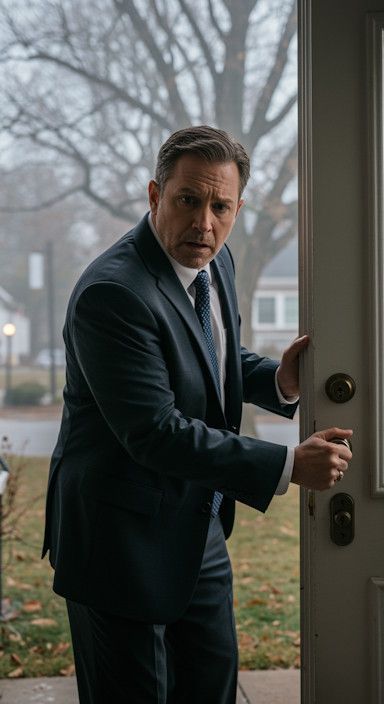Can Hypnosis Help Dayton Residents Manage OCD More Effectively?
What Is Obsessive-Compulsive Disorder, and Why Is It So Hard to Control?
Obsessive-Compulsive Disorder (OCD) affects thousands of people in the Miami Valley area. It’s not about being “neat” or “organized” — it’s a mental health condition involving persistent intrusive thoughts (obsessions) and repetitive behaviors (compulsions) that aim to reduce anxiety.
For example:
- Someone might repeatedly check a stove before leaving their Kettering apartment.
- A University of Dayton student may feel compelled to wash their hands dozens of times after touching a doorknob.
- A parent from Centerville might replay distressing thoughts that won’t stop looping in their mind.
The gold-standard therapy for OCD is Exposure and Response Prevention (ERP) — a form of cognitive-behavioral therapy (CBT) that gradually helps people face their fears without performing rituals. It works, but it’s not easy. ERP demands patience, focus, and emotional resilience. Some people find the process so overwhelming that they quit before seeing results. That’s where clinical hypnosis (also called hypnotherapy) comes in.
How Does Hypnosis Complement Traditional OCD Therapy?
At Everleigh Hypnosis in Dayton, hypnosis doesn’t replace ERP — it enhances it. Hypnosis helps the mind practice what ERP teaches, but in a deeply relaxed, focused state.
During hypnosis, clients enter a state of heightened concentration and mental calm, where they can safely rehearse exposure scenarios. For instance, they might imagine touching a contaminated surface and resisting the urge to wash, while experiencing confidence and self-control.
This process builds mental muscle memory, allowing clients to carry those calm, confident feelings into real-life situations. The Hypnotherapy Directory notes that hypnosis can strengthen emotional regulation and motivation — both essential to completing ERP successfully.
At Everleigh Hypnosis, I often use post-hypnotic suggestions like:
“When you feel the urge to repeat a behavior, you’ll pause, breathe deeply, and remember your success from before.”
It’s not magic — it’s neurological reinforcement. By repeating these cues in hypnosis, the brain begins to respond differently to anxiety triggers in daily life.
What can Trigger OCD?
Obsessive-Compulsive Disorder (OCD) is a mental health condition characterized by a cycle of obsessions and compulsions. Obsessions are unwanted, intrusive thoughts, images, or urges that cause significant anxiety or distress. In response to these obsessions, individuals with OCD feel compelled to perform repetitive behaviors or mental acts, known as compulsions, in an attempt to alleviate their anxiety or prevent a feared event.
However, these compulsions typically provide only temporary relief and can become time-consuming, significantly interfering with daily life and functioning. It's important to recognize that OCD is not simply about being overly tidy or organized; it's a serious disorder that can have a profound impact on an individual's quality of life.
What Are the Effects of OCD on Daily Life?
Obsessive-Compulsive Disorder (OCD) can have profound effects on a person's life, often disrupting daily activities, relationships, and overall well-being. People with OCD may spend hours performing compulsive behaviors, which can interfere with work, school, or social interactions. This constant battle with intrusive thoughts and need to perform rituals can lead to significant stress, anxiety, and depression.
Relationships often may suffer as loved ones struggle to understand and cope with the behaviors associated with OCD. In many situations, the fear of embarrassment or stigma may lead people to hide their symptoms, resulting in isolation and a delay in seeking treatment. The cumulative impact of these challenges can negatively impact their self-esteem and quality of life, making it crucial for those affected to seek professional help to manage their symptoms and regain control over their lives.

What Does Science Say About Hypnosis for OCD and Anxiety?
While large-scale OCD-specific hypnosis trials are still limited, the evidence base for hypnosis in anxiety and stress regulation is strong.
- The VA Whole Health Library recognizes hypnosis as an evidence-based tool for conditions such as anxiety, stress, and concentration difficulties.
- A meta-analysis published in International Journal of Clinical and Experimental Hypnosis found significant reductions in stress and anxiety symptoms across multiple studies.
- The Hypnotherapy Directory shares clinical examples where hypnosis improved motivation and treatment adherence for ERP patients.
In short: the data suggests hypnosis can improve readiness, reduce avoidance, and increase follow-through — three things OCD patients struggle with the most.
How Does Hypnosis Actually Work in the Brain?
Think of OCD as a mental feedback loop. Intrusive thoughts trigger anxiety → anxiety triggers compulsions → compulsions temporarily relieve anxiety → which reinforces the cycle.
Hypnosis helps interrupt the loop by changing how your mind interprets the trigger in the first place.
Through focused imagery, suggestion, and guided relaxation, hypnosis shifts the brain’s perception of danger and rewires associations between thought and response.
This is why clients often report:
- Less catastrophic thinking
- Reduced physiological anxiety (slower heart rate, relaxed muscles)
- Greater tolerance of uncertainty
Over time, these small changes create a compounding therapeutic effect alongside ERP or other therapy modalities.

“The Ritual of Symmetry”
How Do Dayton Residents Benefit from a Local Approach?
Dayton has a unique pace — a mix of aerospace precision, Midwest humility, and small-town neighborliness. OCD often manifests differently here than it might in a big city.
Some clients feel triggered in:
- The Oregon District, worrying about touching door handles in busy restaurants
- Wright-Dunbar, afraid they forgot to lock up before heading downtown
- University of Dayton students, repeating exam rituals for “good luck”
At Everleigh Hypnosis, we localize each session — using imagery familiar to Dayton residents. For example:
- Visualizing calm walks along the Great Miami River
- Imagining peaceful confidence while watching a Dayton Dragons baseball game
- Anchoring patience in the rhythm of Dayton’s quiet winter mornings
By grounding therapy in familiar places, clients experience transformation not just in the office — but in real life, across the city they call home.

“The Fear of Contamination”
Local Success Stories from Dayton Residents
Emily’s Story (Wright State University Student)
Emily struggled tremendously with contamination fears. Her ERP program asked her to touch bathroom surfaces without washing her hands — a terrifying thought. During hypnosis at Everleigh Hypnosis, we built mental imagery of success rather than fear.
We guided Emily to picture the Wright Flyer soaring over Huffman Prairie as she remained calm and confident after touching a “contaminated” object. That symbol of Dayton’s ingenuity became her personal anchor.
Within eight weeks, Emily moved through her ERP steps faster than expected and reported her distress levels dropping from 9/10 to 4/10.
Sam’s Story (GE Aviation Engineer)
Sam couldn’t leave his home in Beavercreek without checking locks and stove knobs over and over — sometimes for an hour. Through hypnosis, he practiced a simple mental mantra:
“I’ve checked once — that’s enough.”
We paired it with visualization: locking the door, exhaling, and walking confidently to his car. He also used a tactile cue — pressing thumb and forefinger together — whenever doubt crept in. Within two months, his morning checks dropped to just 10 minutes. That extra time meant arriving early to work — and rediscovering peace of mind.
How Can Everleigh Hypnosis Help You with OCD?
Hypnosis, when conducted by an excellent hypnotherapist, can be a valuable tool in helping individuals with Obsessive-Compulsive Disorder (OCD) to overcome their condition. A skilled hypnotherapist can guide the person into a relaxed and focused state of mind, known as trance, where they are more open to suggestions and positive changes. In this state, the hypnotherapist can work with the individual to identify the root causes of their obsessions and compulsions, which are often related to deep-seated anxieties, fears, or unresolved emotional issues.
Through various techniques such as visualization, suggestion, and cognitive restructuring, the hypnotherapist can help the individual challenge and reframe their irrational thoughts and beliefs that fuel their OCD. For example, they may be guided to visualize themselves responding calmly and confidently in situations that would typically trigger their compulsive behaviors. The hypnotherapist can also teach the individual self-hypnosis and relaxation techniques, empowering them to manage their anxiety and reduce the intensity of their obsessions and compulsions on their own.
Over time, hypnosis can significantly help individuals with OCD develop a stronger sense of control over their thoughts and behaviors. By equipping them with effective coping strategies and a more positive mindset, they can experience a significant reduction in their symptoms and an improvement in their overall quality of life. It's important to note that while hypnosis can be an extremely beneficial therapy, it may be used in conjunction with traditional treatments like cognitive-behavioral therapy and medication. It's crucial to work with a qualified and experienced hypnotherapist who is knowledgeable about OCD and its complexities.

Why Choose Everleigh Hypnosis in Dayton?
With more than four decades of clinical experience, Everleigh Hypnosis has become one of Dayton’s most trusted names in helping residents manage stress, anxiety, and behavioral challenges.
Our approach blends scientific precision with emotional compassion. Each hypnosis program is custom-tailored to your mind, your triggers, and your goals. You’ll never get a one-size-fits-all script — you’ll get a personalized plan built for real-world change.
We proudly collaborate with Dayton’s top mental health professionals, including psychologists, ERP specialists, and physicians, to ensure that hypnosis becomes a seamless part of your healing journey.
Ready to Regain Control and Calm?
You don’t have to fight your mind alone. If OCD is disrupting your life — whether it’s intrusive thoughts, checking rituals, or relentless anxiety — we can help you find peace again. ✨ Call Everleigh Hypnosis at 937-777-9293 or reach out and send us a message to request a call-back here (we will normally call you within a few hours not days to help answer your questions and help you to get scheduled asap!)
In the meantime come visit our website @ www.EverleighHypnosis.com to learn more about how we have helped countless others! Let’s help your mind fly free — just like the Wright Brothers’ first flight right here in Dayton!


